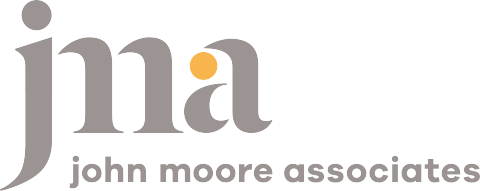The SECURE Act: Who Does it Affect?
Share This Insight
The new decade brings with it new laws. Congress passed the SECURE Act in late December, which includes many impactful reforms for retirement plans, along with a few ancillary tax updates and extensions. The SECURE Act will touch most American families in one way or another. Rather than try to relay all of the changes it encapsulates, I identified specific groups most affected by this sweeping legislation.
- Owners or inheritors of large retirement accounts – Possibly the most impactful change in the SECURE Act pertains to the inheritance of retirement accounts (IRA, 401(k), 403(b), etc.). Under previous tax law, non-spouse beneficiaries of retirement accounts had the option to “stretch” an inherited IRA by taking small distributions over their lifetime. The SECURE Act did away with this option by replacing the “stretch” rules with a 10-year maximum distribution period. This new rule could cause a much higher tax rate as the entire balance of the account is realized as taxable income over a shorter period. For example, an inheritor of a $2M IRA will need to realize the full taxable income of the account over only 10 years (or approximately $200,000 per year). Owners of large retirement accounts, or those anticipating a large retirement account as part of their inheritance, may require additional planning to minimize the impact of receiving the full value over a shorter period. This provision may also impact how retirement savers allocate between Traditional and Roth 401(k) contributions.
- Retirement account owners approaching age 70 ½ – Previous tax law required minimum distribution from pre-tax retirement accounts starting the year the account owner turned 70 ½. The SECURE Act bumps this date to age 72 for anyone reaching 70 ½ in the year 2020 or later. Please contact us if you are not sure how this impacts the timing of your required distributions.
- Individuals working past age 70 ½ and wanting to save in an IRA – Previous law prohibited IRA contributions for individuals after age 70 ½. Beginning in 2020, individuals over age 70 ½ can make contributions to a Traditional IRA, assuming they have earned income. (Pensions, Social Security, and investment income do not count as earned income.) The deductibility of an IRA contribution will remain dependent on income limits.
- 401(k) investors (especially those nearing retirement) – A rather small percentage of 401(k) plans currently include an annuity as part of their investment offering. The SECURE Act may have a dramatic impact on 401(k) plans by making it easier to include annuities within a retirement plan. I am hesitant to say this is a good change. Insurance companies and their salesforces are sometimes very aggressive in their sales practices, and we often see clients who own annuities that do not make sense for their personal situation and goals. Feel free to reach out to us for a second opinion if you receive an offer for an annuity through your employer’s 401(k) plan.
- Employers who offer or are considering offering a 401(k) plan – The SECURE Act offers new incentives for small businesses to offer 401(k) or include certain provisions. We encourage employers who are considering a plan to work with their tax advisor and qualified retirement plan specialist to be sure they enact the appropriate offerings in their plan to maximize potential tax credits.
These five categories are only a small portion of the changes included in the SECURE Act. Please do not hesitate to contact one of our advisors if you want to know more about these or other provisions within this new legislation.
Any opinions are those of Brian Cochran and not necessarily those of Raymond James. The information has been obtained from sources considered to be reliable, but we do not guarantee that the foregoing material is accurate or complete. While we are familiar with the tax provisions of the issues presented herein, as Financial Advisors of RJFS, we are not qualified to render advice on tax or legal matters. You should discuss tax or legal matters with the appropriate professional.
Subscribe for More Financial Insights
Never miss a post. Receive notifications by email whenever we post a new JMA Insight.
